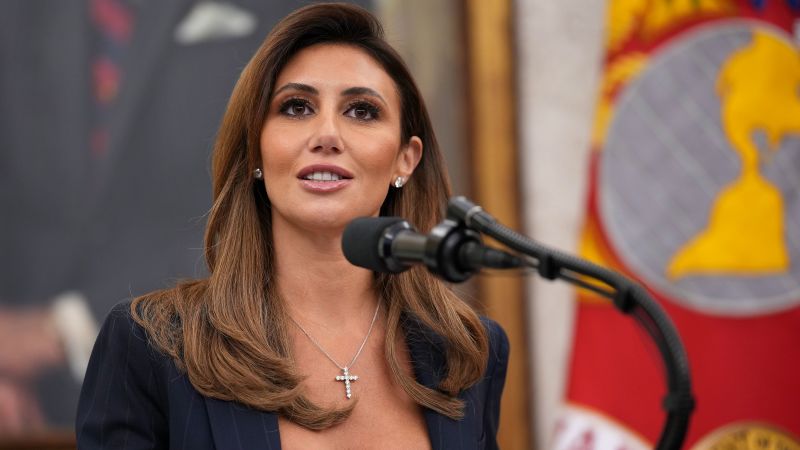The recent developments in the leadership of the U.S. Attorney’s Office in New Jersey have stirred significant controversy and confusion. On a notable Tuesday, the Department of Justice (DOJ) moved swiftly to terminate Alina Habba, who had been appointed as the interim U.S. attorney. This abrupt action came in response to a decision made by federal judges in the state, who opted not to extend Habba’s temporary appointment. As such, the situation has underscored the complex interplay between judicial authority and executive oversight within the framework of federal appointments.
Adding to the drama, Attorney General Pam Bondi announced that Desiree Leigh Grace, New Jersey’s First Assistant U.S. Attorney, would be stepping into the role previously occupied by Habba. This transition marks a significant milestone, as Grace becomes the first assistant U.S. Attorney in the state to secure an elevation to such a prominent position. In her public statement, Bondi insinuated that the judges’ actions were politically motivated and underscored the DOJ’s stance on resisting what she characterized as “rogue judges.” This sentiment reflects the ongoing tension between judiciary and executive branches, especially when it concerns appointments tied to presidential allies.
The rapid changes have elicited confusion regarding the leadership of New Jersey’s U.S. Attorney’s Office. There are many unanswered questions about the enforceability of Grace’s appointment and whether district court judges will choose to contest the DOJ’s decisions. Additionally, the expiration date of Habba’s interim appointment remains ambiguous, contributing to the atmosphere of uncertainty. According to a court order signed by Chief Judge Renée Marie Bumb, Grace’s appointment was supposed to be “effective July 22, 2025, or upon the expiration of 120 days after the appointment by the Attorney General” of Habba, thus complicating whether or not Grace is truly an immediate successor.
Alina Habba’s previous career is noteworthy; she was appointed by President Donald Trump on March 24, 2023, and sworn in just days later. Her prior roles included service as a spokesperson for Trump’s campaign as well as being his personal legal counsel. She represented Trump in civil fraud trials, highlighting her intricate connection with the former president and his administration. Habba’s appointment as U.S. attorney, however, has not progressed smoothly, as her nomination for a four-year term is still pending a vote from the Senate Judiciary Committee, creating further political complications.
In the backdrop of this unfolding saga, President Trump and his legal team have been actively considering the potential reappointment of nominees who faced rejection from the courts. Despite these discussions, it remains unclear whether Habba would accept another nomination should it arise. As the political climate becomes increasingly polarized, Deputy Attorney General Todd Blanche voiced concerns on social media regarding judicial actions allegedly aimed at expediting Habba’s removal before her term was completed. He claimed such maneuvers exemplified a left-leaning agenda rather than adherence to the rule of law, thereby highlighting the contentious nature of recent judicial actions.
Moreover, this incident marks the second instance of a Trump nominee facing troubles securing support from the judiciary or the Senate committee, following the controversial nomination of Ed Martin for the D.C. U.S. Attorney’s office in May. Such occurrences are relatively rare and raise questions about the broader implications for executive appointments within the federal landscape. Indeed, the fallout from multiple nominees struggling to gain approval from the Senate or federal judges illustrates significant risks for any administration navigating through an increasingly divided political environment.
The narrative surrounding Alina Habba’s abrupt departure and subsequent challenges posed to her successor paints a vivid picture of the fraught dynamics at play in the U.S. political and legal landscape. As stakeholders await further clarity, the ongoing saga reflects broader tensions and themes related to authority, accountability, and the checks and balances inherent within American governance. With the story still developing, additional updates are likely, and they will continue to capture the nation’s attention as these legal and political machinations unfold.











